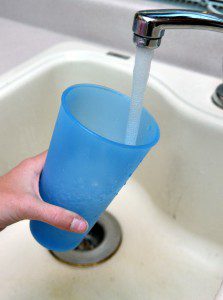WESTFIELD—According to the Massachusetts Department of Environmental Protection (MassDEP), four private well samples in the city so far have come back with detection of perfluorinated chemicals (PFCs), with one being above the lifetime advisory limit previously given by the Environmental Protection Agency (EPA).
Representatives from MassDEP’s western regional office met with the Barnes Aquifer Protection Advisory Committee (BAPAC) Tuesday and discussed findings from 22 private well tests in the city whose results have been received. According to Eva Tor from MassDEP, 18 of the 22 wells tested so far were categorized as non-detect, which Tor said is a laboratory limit of 17 parts per trillion (ppt). However, four came back above the limit, with one testing above the EPA lifetime advisory limit.
“One sample south of the base had a high concentration of about 800 ppt,” Tor said at the meeting. “As soon as we got that result we notified the homeowner and got them bottled water that evening.”
The EPA lifetime advisory limit is currently 70 ppt.
The site in question is on Lower Sandy Hill Road. Tor said that in addition to bottled water, MassDEP will be installing a granular activated carbon (GAC) filter at the residence. Also, Catherine Skiba from MassDEP said via email that MassDEP will be “providing water to the homes immediately surrounding the home where results exceeded the health advisory.”
Meanwhile, MassDEP is awaiting results from a second test at the home. Retests occur when the advisory limit has been found, and the residents are notified immediately when test results come in, per Tor.
According to David Billips, director for Westfield Department of Public Works, a solution that the city is looking at for the Lower Sandy Hill Road home is to possibly connect it to the city’s water system.
“The private well at Lower Sandy Hill Road, water line is only a few hundred feet away,” he said.
Billips said that the city would look to connect the home and loop the piping, and the process would not be too costly. If it isn’t looped, then there is a dead-end pipe and the water can sit in the line and develop odor and tastes problems, said Billips.
He also said that depending on the area, this could be a solution for other tests that come back with high levels.
“Depending where they are, most of the other ones they are testing don’t necessarily have water in the area so that may be costly, but if there is water in the area we can get it to them,” he said.


